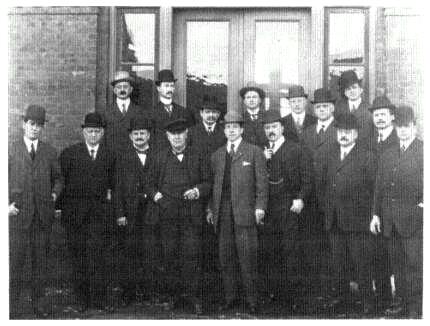Thomas Edison has quite a reputation for being a jerk. Any fan of Nikola Tesla could tell you a hundred stories of despicable behaviour on Edison’s behalf. But the story of how Edison tried to control the entire film industry is a much lesser known story.
Try this on for size:
Imagine you just purchased a brand new automobile. And imagine that since the company who invented the car developed the method with which you press down the gas pedal. Then, imagine that every time you drove when you engaged that pedal, the company who created the pedal asked you to pay them a nickel because they’d patented the method.
It sounds pretty absurd, right?
Well, that’s pretty much what happened back at the dawn of cinema, only it concerned film cameras. Thomas Edison created a consortium of all the biggest film companies of the day (Vitagraph, Biograph, Essanay and others). They got together under the banner of “The Patents Company.” They owned all of the patents and copyrights relating to the brand new film camera. And if you wanted to make a film, you had to use what was called a Latham Loop to thread the film through the camera so it wouldn’t get chewed up through the gate. A man named Latham came up with that specific method and patented it. Edison and his companies bought the patent (and any others germane to the operation of a camera) and insisted that any one who wanted to film a motion picture had to pay them for every time they used this method, knowing it was impossible to film without it.
Independent filmmakers of the time had bought their cameras outright (which were very expensive and hard to get), and many of them bristled at the thought of paying any more money to Edison and his men to make a film.
To prevent these rogue independent filmmakers from operating, Edison would send armed thugs and gangsters to bust up the cameras and disrupt productions.
According to Allan Dwan, a classic film director with over 400 films under his director’s belt (he directed The Sands of Iwo Jima, Heidi, and the Douglas Fairbanks 1922 version of Robin Hood), Edison and his men sent their goons to Universal Studios’ New York production facility and tried burning the place down. He related the story to Peter Bogdonavich for the book Who The Devil Made It:
To prevent us from operating, [Edison] employed roughnecks and hard-arm people and gangsters to destroy us. At one time, they raided the Universal facilities in New York–almost burned them down. Two or three people were shot. That was a hoodlum attack–probably a number of gangsters there–and the police were in on it. But in addition to that kind of violence, they sent snipers out with long-range rifles.
Long range rifles?
Yes. You read that right. Long range rifles.
Snipers were hired by the patents company and given missions to destroy the cameras of any film production that didn’t pay their protection fee. Independent filmmakers these days think they have it bad, how do you think filmmakers of today would react if they had to compete with all the normal pressures of filmmaking and have snipers added to the mix?
Film crews took to arming themselves and shooting films in more and more remote areas of the country, hoping to avoid the armed thugs on Edison’s payroll.
This is actually the reason film companies moved west to Hollywood, to get out from under the thumb of Edison and his Patents Men.
It’s important to remember that this was all happening in the early 1900s, and film companies were making one-reelers and transporting their crew and equipment on horse-and-buggies. They were shooting a film or two week, and releasing them across the country to any barn, movie house, or legitimate theatre that had a projector. In 1914, the average ticket price for a movie was a dime, twice that for an adult. Charlie Chaplin hadn’t even yet become a star: his career started with Mack Sennett long after he moved to California to escape Thomas Edison.
The movie industry seems so entrenched in Hollywood and California these days, that it’s hard to imagine what the film industry would look like without Edison driving it west.
Eventually the Supreme Court threw out the legal basis for Edison’s protection racket and the film industry blossomed into the massive, creatively bankrupt construct that we know and love today.
This story is one that’s been on my radar for a long time and I hope you guys find it as interesting as I do. Well, maybe not AS interesting as I have, I’ve written a feature length screenplay set around this idea and an eventual novel, both called The Latham Loop. Check my author website for more details about that when one of them eventually happens.
